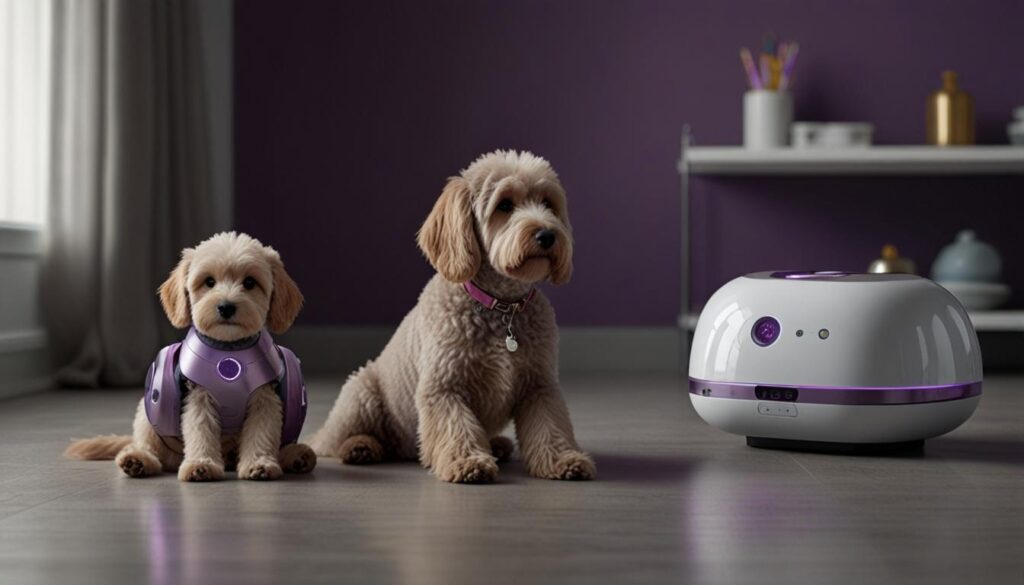From AI-powered robots like ORo for interactive pet care to health-tracking collars and even cat translators, technology is transforming the way owners care for their pets. While the benefits are clear, concerns about the impact on the human-animal bond are also emerging.
AI and the Modern Pet
Artificial intelligence (AI) technology is increasingly being incorporated into pet care, creating tools to enhance the relationship between pets and their owners. In Shrewsbury, Massachusetts, Sandeep Sadhu uses a robot named ORo to play, feed, and monitor his mini goldendoodle, Simba, while he runs a construction company. This robot, developed by Ogmen Robotics, uses machine learning to improve its interaction with pets over time.
Advanced AI-powered devices, such as smart collars and pet cameras, are also gaining popularity among pet owners. Melanie Rigden from the San Francisco Bay Area uses a PetPace collar to track her mini-Australian labradoodle Ruby’s health metrics like calories burned, stress levels, temperature, and respiration. The collar, developed by veterinarian Asaf Dagan, aims to detect early signs of illness through personalized biometric profiles.
AI healthcare applications, like TTcare, provide diagnostic feedback by analyzing uploaded photos of pets’ eyes, skin, teeth, and joints, boasting over 90 percent accuracy. Meanwhile, the Petcube company’s AI cameras offer two-way audio, motion alerts, and treat dispensers, allowing pet owners to monitor their pets remotely.
MeowTalk, an AI cat translator app with over 22 million downloads, interprets cat vocalizations into human language. Olivia Cole, the marketing director, cited a personal experience where the app identified her cat Felix’s meow as a sign of pain, leading to a cancer diagnosis.
Despite the benefits, concerns are raised about how technology might affect the human-animal bond. Gregory Berns from Emory University and Philip Tedeschi from the University of Denver caution against over-reliance on AI, suggesting it might diminish the mutual interactions pets and owners share. Despite this, the growing pet-tech industry, projected to reach $500 billion globally by 2030, continues to explore AI’s potential in pet care.










